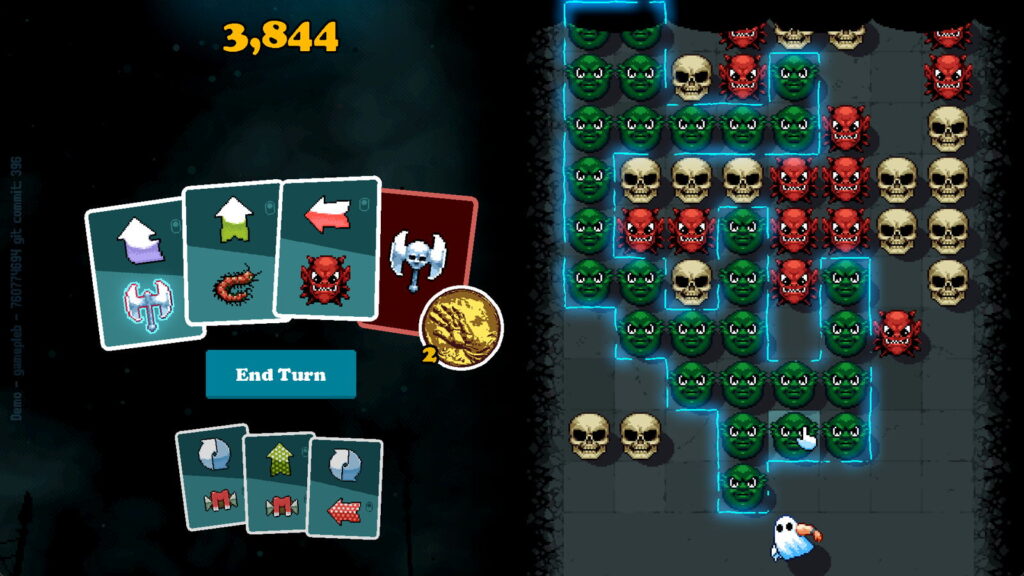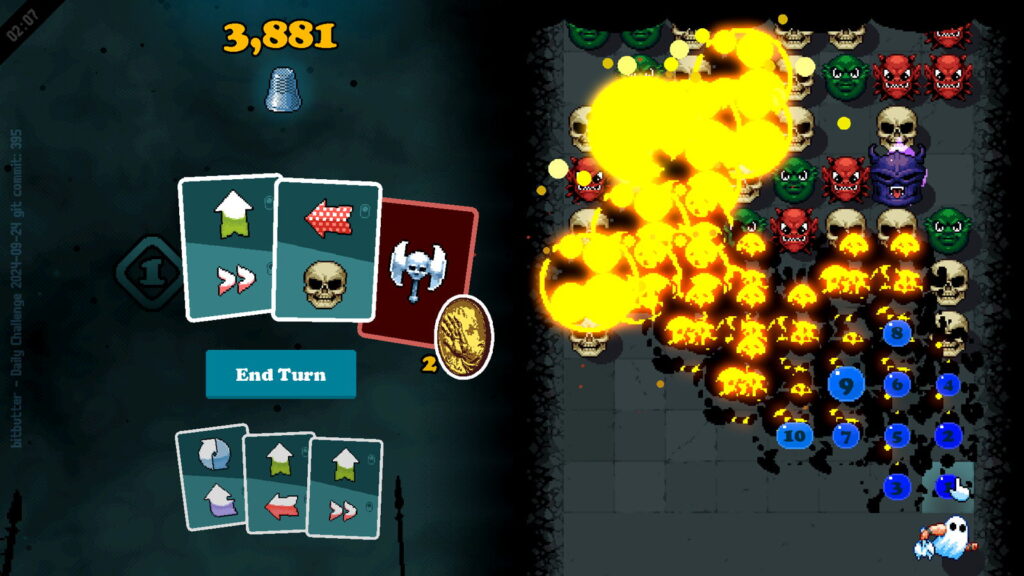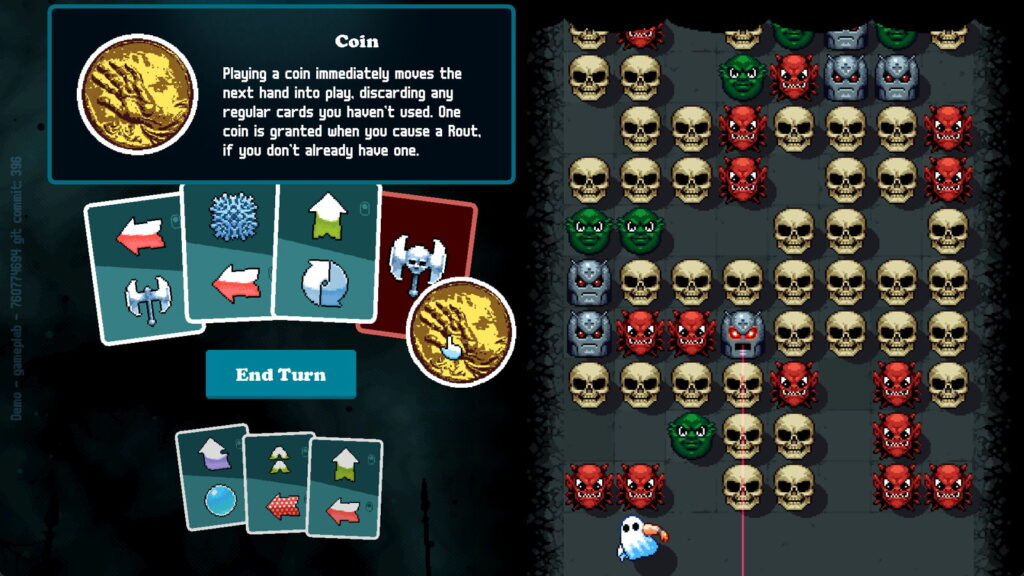Tomasz Kaye had prior game development experience, with credits on Ibb & Obb and Chalo Chalo, but this time he went solo for his latest creation Axe Ghost. “It wasn’t exactly a deliberate choice,” he explains, “I had a small game idea that I wanted to finish and publish, and it seemed doable alone.” What started as a simple concept quickly turned into a game that challenges players with a mix of strategic depth and risk-reward mechanics.
Kaye also embraced the use of Large Language Models, which he credits with saving valuable time. “I used ChatGPT heavily while writing the backend Amazon service that handles the daily challenge.” While working solo offered him the freedom to iterate quickly and make decisions on a whim, Kaye acknowledges that going it alone comes with challenges. “Working with others means you have a sounding board for ideas and it’s easier to stay motivated,” he says.
This is your first solo project. Why did you become a solo developer?
“Doing Axe Ghost solo wasn’t exactly a deliberate choice, it more happened by default. I had a small game idea that I wanted to finish and publish, it seemed doable alone, which seemed like an advantage for developing this kind of project quickly. “
What are the biggest advantages of working solo?
“For me the biggest advantages of working solo are the fast iteration times that are possible, and the freedom to make sweeping changes on a whim; no one else’s permission needs to be asked.”
And the biggest pitfalls?
“Working together with others means you always have an available sounding board for ideas, your colleagues can spot issues and introduce improvements you would have overlooked. And if you like your team (you should like your team!), it’s fun to work together and perhaps easier to keep one another motivated for the project. For bigger projects specialisation is an important advantage too. Solo devs have to be generalists, and that’s not for everyone”.

What’s your creative process?
‘My creative process varies. Typically I’ll design and iterate alone, make playable builds, then have others play them and check the response and any (new) problems that crop up in the user’s experience. But depending on the person it can be valuable to just talk through design challenges with another.”
“I met with Richard Boeser again a few weeks back. (The creator of Ibb & Obb and his co-developer on Chalo Chalo.) I think we have a similar attitude about what ‘good game design’ is, mechanically. So that kind of meeting of minds can be very helpful. One of the things we talked about was the possible implementation of a timer in Axe Ghost’s Daily Challenge mode, which was prompted by talking about chess timers and how they alter chess games. The timer is in the beta build of Axe Ghost now, I’m testing how that works. It feels like an improvement so far.”
What keeps you motivated throughout the development process?
“One thing I do to keep things interesting is make games with procedural generation in them. I think I’m able to enjoy playing Axe Ghost for much longer than I could if I was hand-crafting levels. I think this helps with keeping game dev burnout at bay.”

Would you rather work in a team or do you prefer solo?
“On balance I’d rather work in a great team with people I get on well with rather than alone, for me it’s more fun that way.”
How did you get the idea for Axe Ghost?
“With Axe Ghost I wanted to make the smallest scoped game I could think of that was still fun to play, and that had enough depth that you wouldn’t quickly be finished with it. The idea was to create something based on a small ruleset that threw up a very wide set of novel situations you had to reason through as a player.”
“As development progressed I got more interested in deliberately creating situations offering the player greater rewards (high scores) for riskier plays, so Axe Ghost offers that on a couple of levels; if you postpone killing the enemies, and arrange them into big groups first, you score higher. Later you get ‘Quests’ where you can unlock score multipliers by limiting yourself to a random subset of the weapons in each hand. One thing that makes Axe Ghost unusual is that it’s a deliberative score attack game, which is a combination I haven’t often seen. Another thing is that there’s an extremely muscular ghost in it.”

What’s the biggest lesson learned from this project?
“Large language models can massively speed up development, especially when you’re dealing with unfamiliar libraries or environments. I used ChatGPT heavily while writing the backend Amazon service that handles the daily challenge. And I don’t know if this is a lesson exactly because I expected it already but even tiny games are a lot of work to finish and publish.”
The toll on your mental health can be quite high for solo devs. How do you deal with that?
“While I’m creating I don’t experience that. When there’s some setback it would be nice to commiserate and regroup with a team. I sometimes shout into the void on social media instead, until I’m ready to continue.”
Play the Axe Ghost demo now on Steam.

